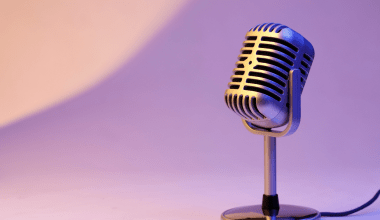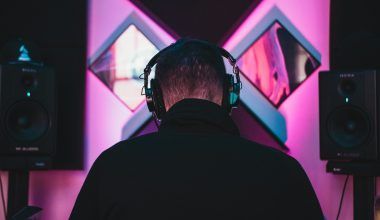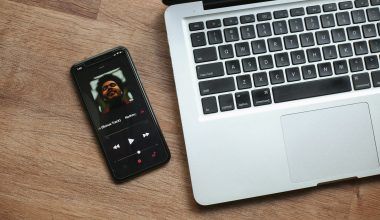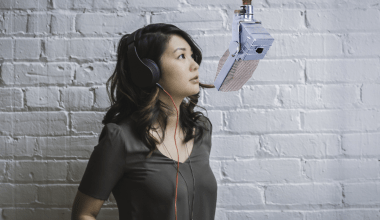Music production might sound complicated, but it’s simply the art of making songs. Have you ever imagined creating your own beats, melodies, or even recording a song? If yes, this guide is here to help you get started. (how to learn music production)Whether you’re a complete beginner or someone who’s curious, we’ll break it all down into simple steps.
Learning music production is not about being perfect on day one. It’s a journey where you’ll explore tools, learn tricks, and gradually bring your ideas to life. The best part? You can start from home with just a computer and your love for music.
What Exactly is Music Production?
Music production is the process of creating a song from start to finish. It includes:
- Coming up with ideas: Writing melodies, beats, or lyrics.
- Recording: Capturing sounds like instruments or vocals.
- Editing: Fixing mistakes or improving the recording.
- Mixing and mastering: Polishing the song to sound professional.
Think of it like cooking. You gather the ingredients (melodies, beats), prepare them (recording and editing), and finally serve a delicious dish (the finished song).
Why Should You Learn Music Production?
Here are some reasons why learning music production is exciting:
- Create your own music: Share your unique style with the world.
- Save money: Record and produce tracks at home instead of paying for a studio.
- Turn it into a career: Many producers make a living by creating music for others.
- Have fun: It’s like playing with sounds and building something amazing.(how to learn music production)
Step 1: Getting Started with the Right Tools
When you’re starting out, you don’t need expensive equipment. Here’s a list of simple tools:
- A Computer: Any modern laptop or desktop will do.
- Digital Audio Workstation (DAW): This is software for creating and editing music. Great beginner options include:
- GarageBand (Mac users)
- FL Studio
- Audacity (Free)
- Headphones or Speakers: Good sound helps you hear details.
- Optional Extras:
- MIDI Keyboard (to play virtual instruments)
- Microphone (for recording vocals or instruments).
Step 2: Choose a DAW and Learn It
Your DAW is like your music-making playground. If you’ve never used one before, don’t worry! Most DAWs have free trials and plenty of tutorials online.
- Tip: Start by watching YouTube videos. Search for “How to use [your DAW].”
Spend time playing around with buttons and tools in your DAW. Learn how to:
- Add sounds.
- Record vocals or instruments.
- Use effects like reverb or equalizer (EQ).
Step 3: Basic Music Theory (Don’t Worry, It’s Easy)
Music theory is like the grammar of music. You don’t need to be an expert, but knowing a few basics can make your songs better:
- Notes and Chords: Learn how notes combine to form chords.
- Beats and Timing: Understand how beats create rhythm.
- Scales: A collection of notes that sound good together.
There are apps like Yousician and websites like Musictheory.net that teach this for free. Start small—try playing with basic chords like C major, G major, and A minor.
Step 4: Recording Your First Sounds
Here comes the fun part! Start recording simple sounds.
- Use your DAW to record your voice or an instrument.
- If you don’t play an instrument, explore loops in your DAW. Loops are pre-recorded sounds that you can use to build your song.
- Pro Tip: Don’t stress about perfection. Even pros start with rough recordings.
Step 5: Making Beats
A great beat is the backbone of many songs. Open your DAW and try creating a beat using:
- Drum kits: Available in most DAWs.
- Virtual instruments: Use a MIDI keyboard or click notes in your DAW.
Experiment with genres like hip-hop, EDM, or even lo-fi beats. Start simple—a kick drum, a snare, and a hi-hat are all you need.
Step 6: Mixing and Mastering Made Simple
Mixing and mastering might sound technical, but it’s like adjusting spices in your cooking.
- Mixing: Adjust the volume of each sound so everything feels balanced.
- Mastering: Give the song a final polish to make it sound professional.
Use effects like:
- Equalizer (EQ): To balance bass, mids, and highs.
- Reverb: To add depth to your sounds.
Don’t worry about mastering every detail right now. Focus on making your song sound clean.
Common Challenges and How to Overcome Them
Feeling Overwhelmed?
Take baby steps. Start by working on one small project, like creating a 30-second beat.
Not Enough Inspiration?
Listen to your favorite songs and think, “How did they make that sound?” Then try recreating it.
Technical Problems?
YouTube is your best friend. Search for solutions or join music production forums for help.
Step 7: Practice, Practice, Practice
The only way to get better is to keep practicing. Here’s how:
- Work on short projects like beats or loops.
- Experiment with different genres.
- Share your work with friends for feedback.
Step 8: Learn from Others
Join online communities like Reddit’s r/WeAreTheMusicMakers or Discord groups. You’ll find fellow beginners, get tips, and even collaborate.
Step 9: Explore Free and Paid Resources
Free Resources:
- YouTube channels like “In the Mix” and “Point Blank Music School.”
- Free sound libraries like Splice (free trial).
Paid Resources:
- Udemy or Skillshare music production courses.
- Premium DAWs like Ableton Live for advanced features.
Step 10: Keep It Fun
Remember, music production is about creativity. Don’t stress about being perfect. Play with sounds, explore your DAW, and most importantly, enjoy the process.
FAQs for Beginners
- Do I need expensive gear?
No! Start with free tools like Audacity and build as you grow. - How long does it take to learn?
It varies. Some people feel confident in weeks; others take months. Focus on learning step-by-step. - Can I learn without playing an instrument?
Yes! Many producers use virtual instruments and loops to create music.
Conclusion: Ready to Begin Your Journey?
Learning music production might seem daunting at first, but it’s a skill anyone can learn with patience and practice. Start small, use the tools you have, and keep exploring. Your first track doesn’t need to be a masterpiece—it’s all about progress.
Now that you know the basics, it’s time to jump in. Open your DAW, press record, and start creating your own music. Who knows? Your next song could be the world’s next big hit!
Related Articles:
For further reading, explore these related articles:
- How to Become a Successful Music Artist in India in 2024?
- Promo Cards on Spotify: A Game Changer for Artists
For additional resources on music marketing and distribution, visit Deliver My Tune.






